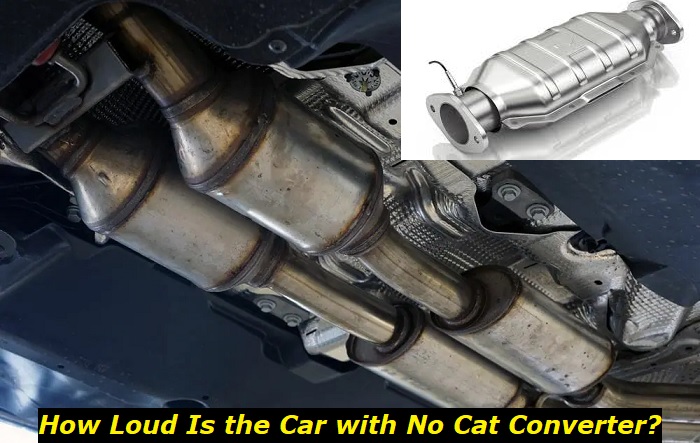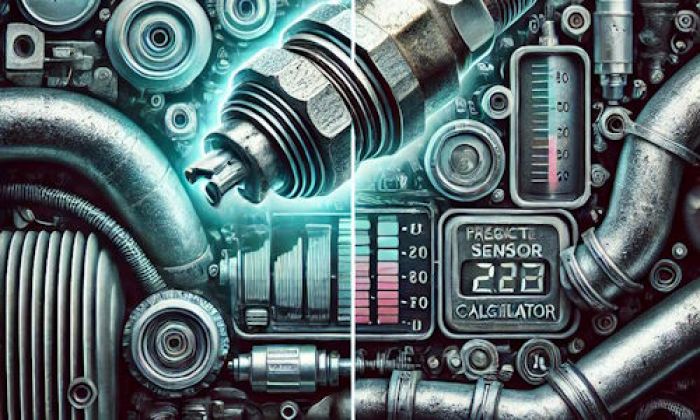Without a catalytic converter on your car, you are guaranteed to draw unwanted attention from everyone around. Things get a little bit louder when these accessories are missing - but just how loud is it? In this article, we'll explore what makes driving a car without a catalytic converter noisier and why it's best to use this device.
We've all witnessed first-hand an engine roaring as someone drives by. Now, let's figure out why that happens and learn more about the potential consequences of disregarding essential parts of our vehicles. So let's start from the basics!

What is a catalytic converter?
When it comes to automobiles, the catalytic converter is one of those things we take for granted - but how does it work? It's all quite mysterious. Put simply, a catalytic converter is a cylinder-shaped part that helps rid your car's engine of harmful pollutants by converting the exhaust into something you won't cough at.
But this remarkable little device achieves more than most of us know; while helping reduce emissions, a catalytic converter also boosts fuel efficiency and performance! Not bad for something as seemingly insignificant as an exhaust pipe filter. Yet, like many inventions, its effect on the world has been profound - changing our environment and raising air quality standards everywhere. So next time you're in your car, take a moment to appreciate your hardworking catalytic converter - destroying those pollutants like a king!
The catalytic converter, a mysterious yet surprisingly vital piece of equipment in modern multi-cylinder vehicles, is typically located underneath the vehicle - the same place most drivers would be hard pressed to find if asked.
In fact, on some makes and models the catalytic converter's anatomy is so unfathomably well-hidden that even experienced mechanics can't seem to locate it without ten minutes of crawling beneath a car with a flashlight. However, you should remember that it usually pops up right at the very place designers intended it to be: buried deep beneath our cars and trucks.
How does a car sound without a catalytic converter?
The sound of a car without a catalytic converter can be quite different compared to the normal one. Without the cushioning layer of this humble little device, your car is sure to have some additional noise coming from the exhaust. It won't be as loud as when you remove a muffler, for example.
Nevertheless, the sound will still be somewhat discomforting in many cases. Besides environmental concerns, there's a reason why it's illegal in most countries to drive without a catalytic converter: your ears won't thank you for it. Not only will it make your car sound louder than usual, but it can also cause slight performance reductions due to the air/fuel mixture being off.
Why does a car sound slightly louder without this essential device?
Many motorists might not realize why their vehicle actually sounds slightly louder without this emissions-regulation technology, which is essentially another muffler for your wheels. It turns out that, since a catalytic convertor reduces exhaust backpressure within an engine, removing it actually allows for more sound to escape from the tailpipe. As if these cars didn't already have enough of an attitude! If you plan on removing your catalytic converter yourself, just remember that it will lead to additional noise and higher emissions!
It's also important to note that having a catalytic converter removed might technically be legal in some countries, but this will likely void any warranties on your vehicle as well as place you at risk of heavy fines.
There can be some good motivations to remove that device
A deep dive into the motivations behind ripping out such a vital component could leave us all raising our eyebrows. After all, if this smog-reducing converter is essential to reducing carbon emissions - and pollution in general - then why on earth would anyone want to tamper with its purpose?
Turns out, there are actually legitimate reasons why some people may want to remove it. Catalytic converters can become inefficient over time due to age, deterioration, and certain fuels that contain more sulfur than the device is designed to handle. Furthermore, it might be very expensive to replace the entire catalytic converter.
Thus, so some people opt instead to just remove it due to financial constraints. In other cases, people might want to try and get a little extra horsepower out of their engine by giving their exhaust system less restriction, which is possible with the removal of a catalytic converter.
Can I get some punishment?
In the US, tampering with catalytic converters typically runs afoul of both federal and state laws. Regulations levied on vehicle emissions standards have long imposed restrictions on removing catalytic converters. Even the most benign attempts to remove them could lead to punitive measures such as hefty fines or criminal prosecutions.
Of course, the legal framework surrounding this matter is complex and multifaceted, so it pays to do your due diligence before attempting any kind of removal - lest you find yourself in way over your head! Engaged individuals would also do well to stay abreast of new developments in this field as they occur, given that regulatory frameworks can change swiftly and unexpectedly.
There is only one legal way to replace your catalytic converter
Federal law that prohibits drivers from tampering with the emission systems. However, in some states, there are additional regulations that prevent auto shops from replacing catalytic converters without a valid legal reason. So what is the valid legal reason for changing a catalytic converter? Here it is:
Your car has to fail either a federal or state emission test. It's unfortunate, but having to take your car in for an emission test and failing seems to be only legal way to replace that device in many states (it seems almost mandatory these days in California and other areas with strict regulations!). Of course, nobody wants to waste time and energy on different tests. But on the plus side, failing the test can actually be beneficial for you. You may be able to replace your existing catalytic converter with a newer model, which will help to increase fuel efficiency, reduce harmful emissions and extend your engine's life span! In other words, you can go from feeling like a sore loser to being smugly triumphant!
How to make my converter last longer?
Nothing will put a damper on your anticipation of a road-trip like realizing that your catalytic converter stopped working. It's a bummer, sure, but with just a few savvy strategies (and maybe some help from an experienced mechanic!) you can ensure that your catalytic converter stays in top shape for as long as possible.
Start by being mindful of the fuel you use - higher quality fuels with fewer ingredients are best for catalyzing those particulates and making sure your engine runs smoothly. Giving the car its due service and maintenance couldn't hurt either; keeping up with oil changes and spark plug replacements will go a long way in promoting your cat's long-term longevity! Finally, be sure to run the occasional diagnosis so you'll have no surprises when it comes time to make that long-awaited weekend getaway.
Conclusion
All in all, the removal of a catalytic converter from a car will make it sound louder, often because the exhaust is no longer being properly filtered and released. While unleashing some horsepower may have appealing benefits, if done so in an illegal manner, the consequences can be serious.
Both federal and state laws prohibit individuals from tampering with their cars' emission systems. Remember that increasing the lifespan of your catalytic converter requires regular maintenance and upkeep.
Have you ever removed a catalytic converter? Let us know in the comments below!
About the authors
The CarAraC research team is composed of seasoned auto mechanics and automotive industry professionals, including individuals with advanced degrees and certifications in their field. Our team members boast prestigious credentials, reflecting their extensive knowledge and skills. These qualifications include: IMI: Institute of the Motor Industry, ASE-Certified Master Automobile Technicians; Coventry University, Graduate of MA in Automotive Journalism; Politecnico di Torino, Italy, MS Automotive Engineering; Ss. Cyril and Methodius University in Skopje, Mechanical University in Skopje; TOC Automotive College; DHA Suffa University, Department of Mechanical Engineering






Add comment